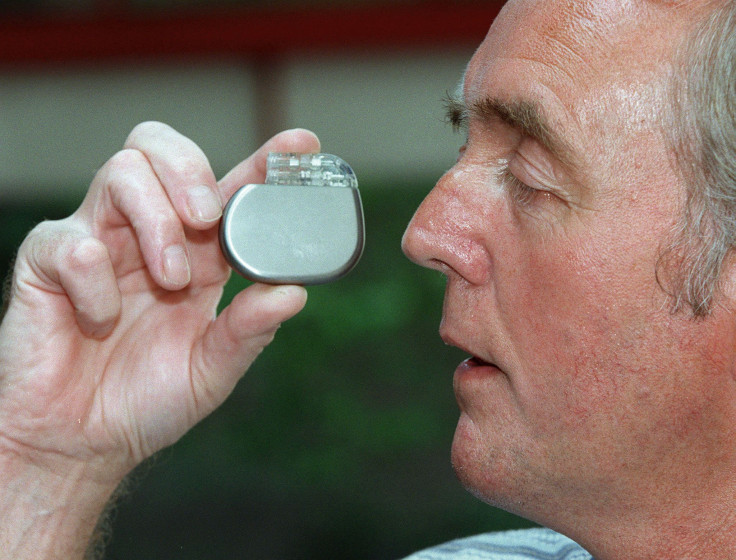Futurist Suggests Replacing Death Penalty With Brain Implants That Control Prisoners’ Mind, Behaviour

Brain implants able to manage out-of-control tempers and violent actions of prisons were suggested to minimise crime rates in the United States and as alternative for death penalty, according to Zoltan Istvan. The futurist and presidential candidate for the Transhumanist Party, Istvan suggested that the technology could be a near-term alternative for criminals on death row and might be considered sufficient punishment.
"Violent crime is a version of mental disease," Istvan stated in an article published in Motherboard, suggesting conducting brain alterations to prisoners could change behaviour and attitudes of criminals into decent members of society. The brain implants would work as a surveillance device that could monitor or possibly control each action of the prisoner with a tranquiliser triggered if violent behaviour is reported or attempted by the inmate.
Trauma alert implant should also be in the brain of citizens, a device that sends signal to alert authorities directly from the brain if someone is experiencing trouble or trauma, he proposed. The surveillance enhancement would reduce criminal rates rapidly in the future, Istvan said.
"If people knew they were going to be caught, crime would drop noticeably … violent criminals will be caught far more frequently than now, especially if we have some type of trauma alert implant in people," he said.
Istvan said that a commercialised device called Thync, a wearable that calms or energises people in minutes, is one of the technological advances that brought the idea of brain implant. The futurist cited thousands of people already have implants in their heads for health solutions, particularly to treat deafness, and help people with Alzheimer's or epilepsy. Istvan added many criminals were also given powerful drugs that changed their mood and attitude.
"So the technology to change behaviour and alter the brain isn't science fiction," he stated. The article indicated that U.S. President Barack Obama's brain initiative focused to treat the involuntary movements associated with Parkinson's disease and improving deep brain stimulation or by developing new technology.
With the suggestions of Istvan, Amanda Pustilnik, a professor at the University of Maryland law school and a senior fellow for law and applied neuroscience at Harvard Law School, told Popular Science, "the story is speculative and interesting, but it gets a bunch of things wrong" on his thoughts and assumptions.
The professor explained that Istvan misunderstood the purpose of death penalty on his concept. The death penalty in the US, according to Pustilnik, exists as the "ultimate punishment" for acted crimes beyond the social contract that it can't be forgiven. "And maybe if those devices work the way the article hypothesizes, the social norms about punishment will change and it won't be so retributive," she said.
"Because I want to believe in the good of human beings, and I also think all human existence has some value, I'm on the lookout for ways to preserve life and maximize its usefulness in society," Istvan stated.
A study titled When "Altering Brain Function" Becomes "Mind Control," published in 2014, found deep brain stimulation, or DBS, technology on treating psychiatric illness can cause actual mind control. The researchers found clinicians were allowed to alter the functions of targeted brain regions, in a reversible manner, with the intent of correcting diseases of the mind, such as depression, addiction, anorexia nervosa, dementia and obsessive compulsive disorder.
The DBS, as the study suggests, is not concern directly with mind control; however, if not properly managed, patients can be victims of mind control even without malice on the part of the person doing the alteration, especially in the case of unexpected treatment of psychiatric illnesses.
To contact the writer, email: darwin.malicdem@ibtimes.tunemedia.biz






